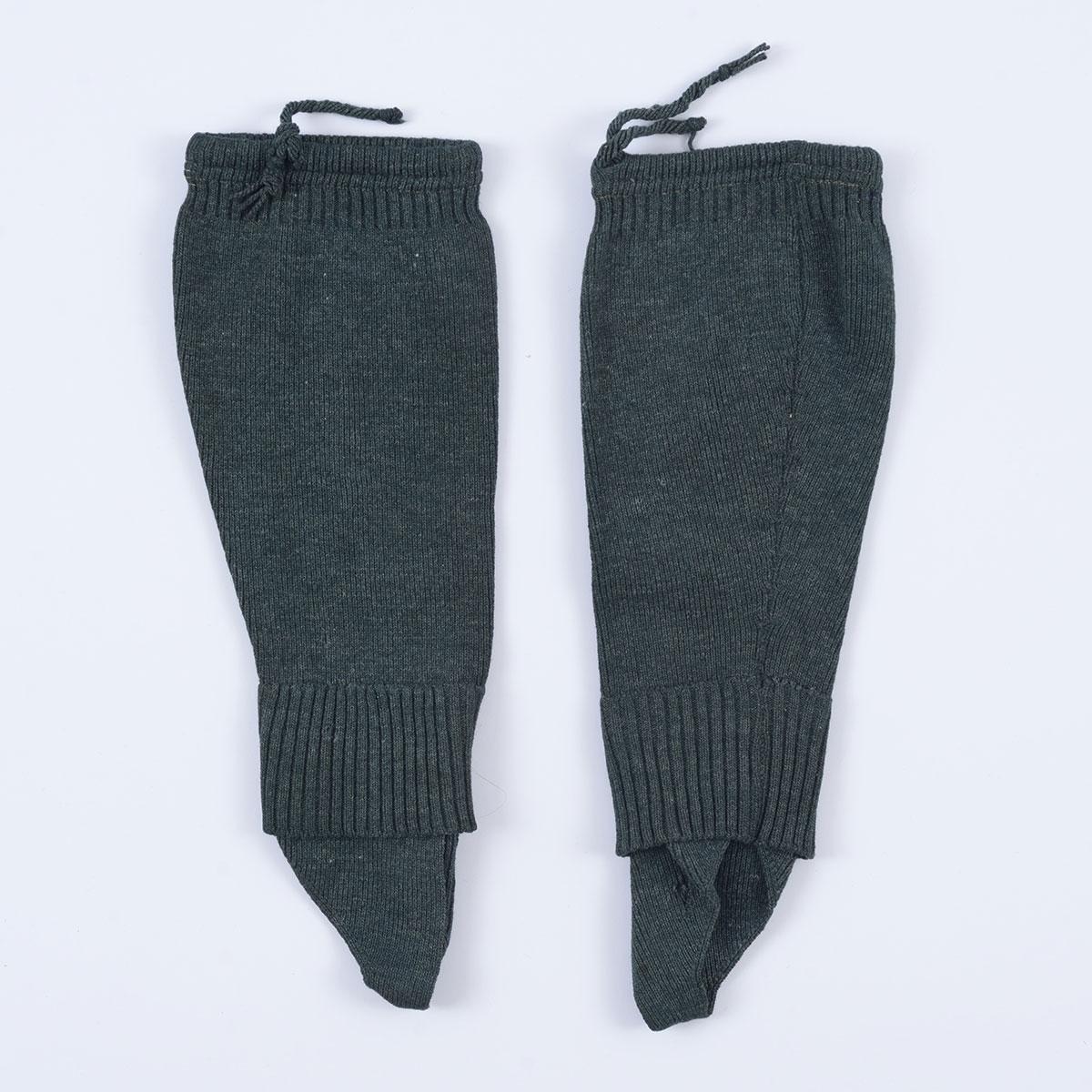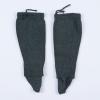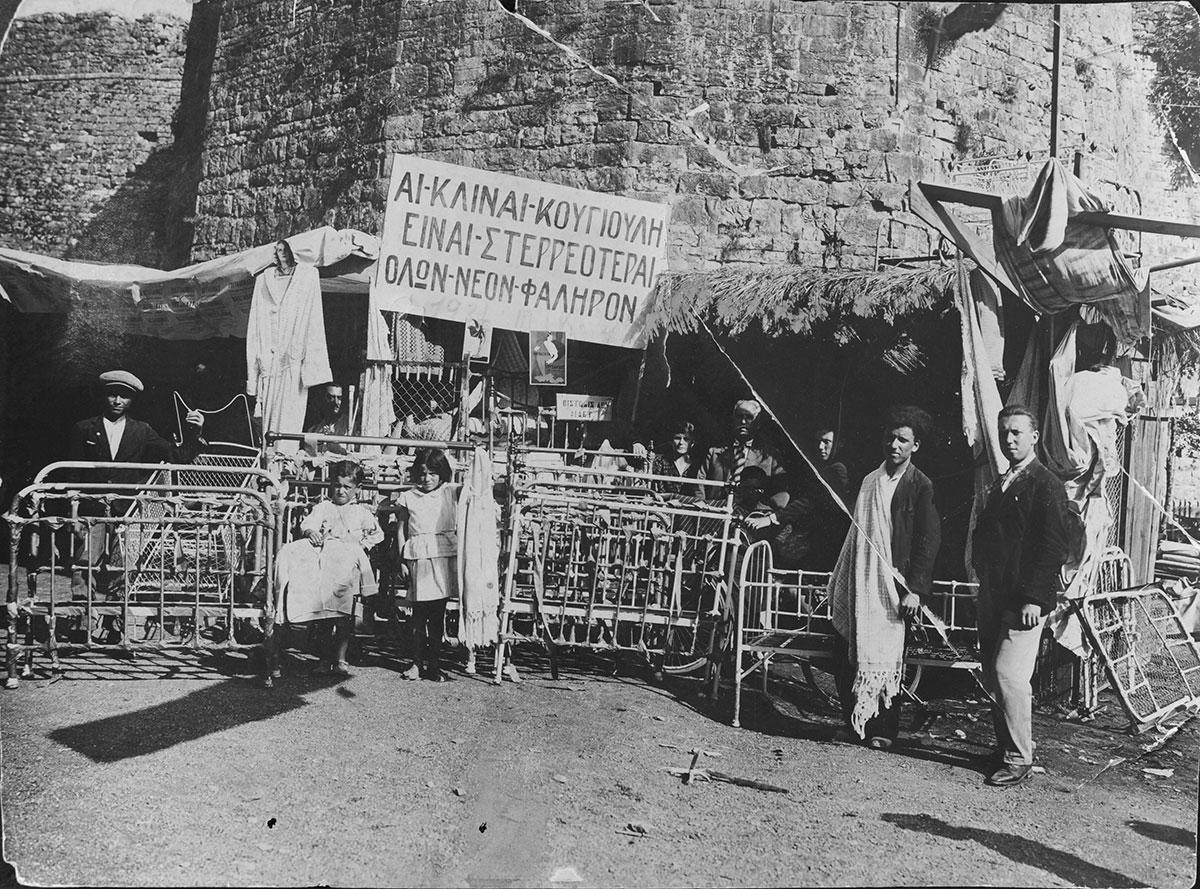
Yad Vashem Artifacts Collection
Courtesy of Mashiach Cohen, Tel Aviv, Israel



Sunday to Thursday: 09:00-17:00
Fridays and Holiday eves: 09:00-14:00
Yad Vashem is closed on Saturdays and all Jewish Holidays.
Entrance to the Holocaust History Museum is not permitted for children under the age of 10. Babies in strollers or carriers will not be permitted to enter.

Yad Vashem Artifacts Collection
Courtesy of Mashiach Cohen, Tel Aviv, Israel



Mashiach Cohen was liberated at Bergen-Belsen on 16 April 1945. He and a friend entered a German Army storehouse and took a kitbag full of army uniforms. He exchanged his lice-ridden prisoner's garb for a German Army uniform. He never wore the leg-warmers that were part of the kit, but he kept them until donating them to Yad Vashem in the summer of 2001.
Mashiach Cohen from Ioannina, Greece, was deported to Auschwitz with his family when he was 22. On arrival, his parents and sister were separated from Mashiach and his six brothers. That was the last time he saw them. He was assigned to the Sonderkommando and one month later was transferred with his brothers to the Eule camp in Germany. After a year of incarceration, they were forced on a death march that lasted a month and ended at Bergen-Belsen. As a result of the Allied bombardment en route and the ensuing chaos, the Nazis massacred large groups of prisoners. All of Mashiach's six brothers were among the murdered. He was the sole survivor of his entire family.
At Bergen-Belsen, Mashiach met an acquaintance from Ioannina who was appointed head of a block. This man organized for Mashiach and his friend to join a group of prisoners whose task was to transport the dead on carts to the forests. The morning of liberation, they started loading the cart when suddenly they saw a tank gun and heard shouts for them to stop working. As they watched the Nazi soldiers fleeing, Mashiach and his friend stopped working and hugged each other.
They then went to the German Army storehouse and took a kitbag full of uniforms including the leg-warmers. With the help of a razor blade they cut coats to their size, and set off to find people they knew.
As they were wearing German Army uniforms, they were taken prisoner by British soldiers. All their attempts to persuade the British that they were former inmates failed, in spite of displaying the prison numbers tattooed on their arms and revealing that they were circumcised Jews.They were finally released after five days, with the help of a Greek officer. The same officer took them to a shop in Hanover where he ordered the shop-owner to provide them with a full set of clothes. Mashiach kept the leg-warmers.
After the war, Mashiach returned to Ioannina and immigrated to Eretz Israel (Mandatory Palestine) in 1947. He met his wife, a survivor from northern Greece, on the day of liberation at Bergen-Belsen. They live in Tel-Aviv and have two sons.
Yad Vashem Artifacts Collection
Courtesy of Mashiach Cohen, Tel Aviv, Israel

Thank you for registering to receive information from Yad Vashem.
You will receive periodic updates regarding recent events, publications and new initiatives.

"The work of Yad Vashem is critical and necessary to remind the world of the consequences of hate"
Paul Daly
#GivingTuesday
Donate to Educate Against Hate


Worldwide antisemitism is on the rise.
At Yad Vashem, we strive to make the world a better place by combating antisemitism through teacher training, international lectures and workshops and online courses.
We need you to partner with us in this vital mission to #EducateAgainstHate
The good news:
The Yad Vashem website had recently undergone a major upgrade!
The less good news:
The page you are looking for has apparently been moved.
We are therefore redirecting you to what we hope will be a useful landing page.
For any questions/clarifications/problems, please contact: webmaster@yadvashem.org.il
Press the X button to continue



